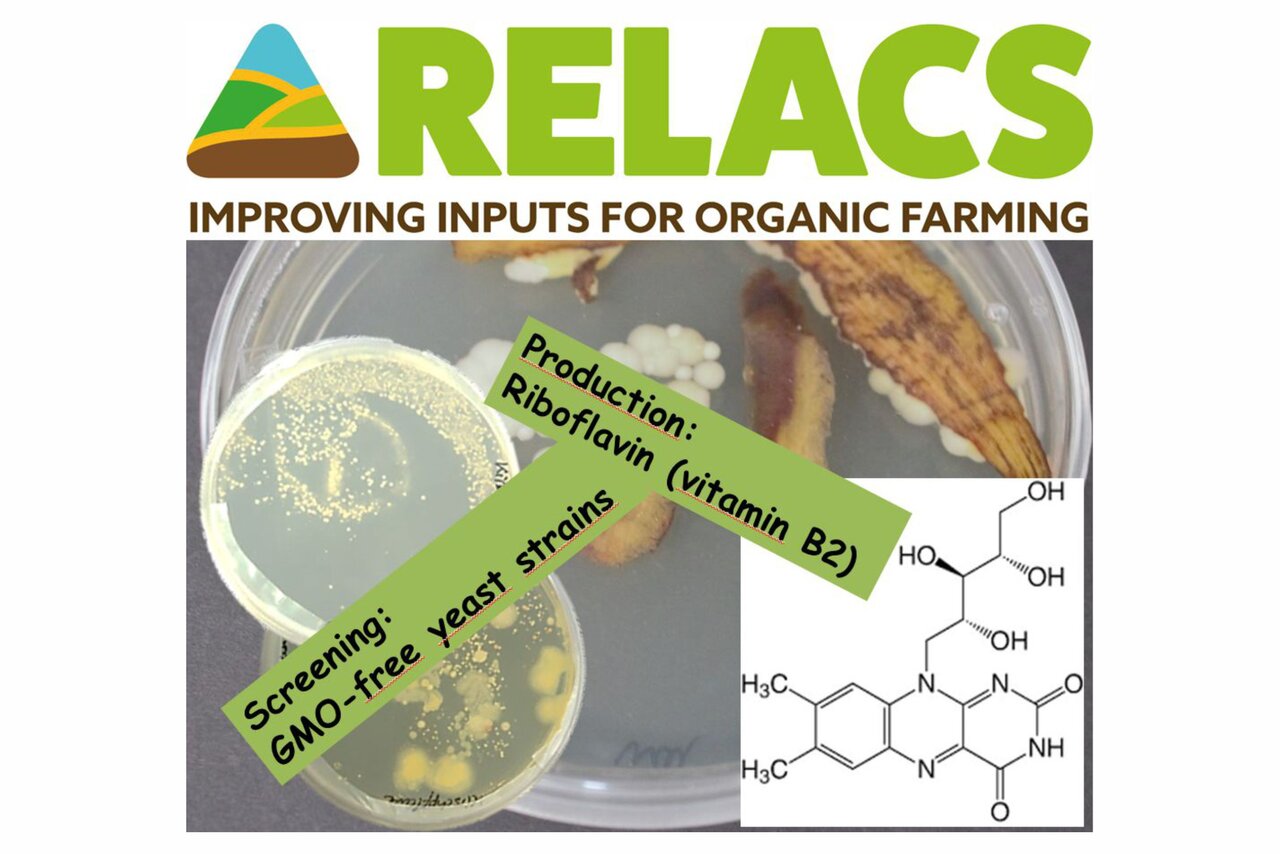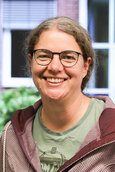Project
Replacement of Contentious Inputs in Organic Farming Systems

Replacement of Contentious Inputs in Organic Farming Systems
RELACS provides a unique opportunity for farmer organisations, advisory services and researchers to work together and contribute to even higher environmental standards in organic farming.
Background and Objective
Organic farmers adhere to high standards in producing quality food while protecting the environment. However, organic farming needs to improve continuously to keep meeting its ambitious objectives. RELACS will foster the development and adoption of cost-efficient and environmentally safe tools and technologies to:
- Reduce the use of copper and mineral oil in plant protection,
- Identify sustainable sources for plant nutrition, and
- Provide solutions to support livestock health and welfare.
As a system approach to sustainable agriculture, organic farming aims to effectively manage ecological processes whilst lowering dependence on off-farm inputs. The RELACS partners will evaluate solutions to further reduce the use of inputs across Europe as well as in countries on the Southern shore of the Mediterranean. The project partners will provide scientific support to develop fair and implementable EU rules to improve current practices in organic farming. Farm advisory networks in 11 European countries will reach out to farmers to ensure effective dissemination and adoption of the tools and techniques.
RELACS builds on results of previous research projects and takes far-advanced solutions forward.
In this EU funded project the aim of the Thünen-Institute for Agricultural Technology is the identification of new riboflavin (vitamin B2) -producing wild-type strains (GMO-free) and the optimization of these GMO-free strains for riboflavin overproduction.
Riboflavin can be synthesized by plants and microorganisms but higher eukaryotes (e.g. livestock) cannot synthesize riboflavin.
Therefore riboflavin is a dietary necessity. Currently riboflavin is industrial produced using metabolically engineered strains (GMOs).
Approach
In general we intend to work on two approaches to find new GMO-free riboflavin overproducers to ensure continuous supply of organic livestock production. On the one hand we intent to search for new riboflavin producers isolated from special habitats. On the other hand we will have a closer look to the phylogenetic tree of known naturally overproducing riboflavin strains to identify new, previously unknown riboflavin producers.
After isolation of new potent riboflavin producing strains the optimization using bio-process engineering will be conducted. The fermentation process will be optimized in lab scale in order to achieve a high space-time yield and best volumetric productivity of riboflavin.
Results
DOI:10.3220/PB1687162447000
Links and Downloads
Thünen-Contact

Involved Thünen-Partners
Involved external Thünen-Partners
-
The International Federation of Organic Agriculture Movements EU (IFOAM EU)
(Brüssel, Belgien) -
Fondazione Edmund Mach di San Michele all’Adige
(S. Michele all’Adige (TN), Italien) - Julius Kühn-Institut - Bundesforschungsinstitut für Kulturpflanzen (JKI)
(Quedlinburg, Braunschweig, Groß Lüsewitz, Kleinmachnow, Deutschland) -
Scotland's Rural College (SRUC)
(Edinburgh, Großbritannien (inkl. Nordirland)) - University of Copenhagen
(Kopenhagen, Helsingoer, Dänemark) -
Universität Hohenheim
(Hohenheim, Deutschland) -
Mediterranean Agronomic Institute of Bari (CIHEAM IAMB)
(Valenzano, Italien) - ITAB - L’Institut Technique de l’Agriculture Biologique
(Paris, Frankreich) -
Norsk institutt for bioøkonomi (NIBIO)
(Ås, Norwegen) -
ÖMKi Hungarian Research Institute of Organic Agriculture
(Budapest, Ungarn) -
Trifolio-M
(Lahnau, Deutschland) -
SubstainTec GmbH
(Frick, Schweiz) -
Biological Products for Agriculture (bi-pa)
(Londerzeel, Belgien) -
University of Trento
(Trento, Italien) -
Økologisk Landsforening
(Åbyhøj, Dänemark) -
Bioforum Vlaanderen
(Antwerpen, Belgien) -
Bioselena
(Karlovo, Bulgarien) - Naturland - Verband für ökologischen Landbau e.V.
(Gräfelfing, Deutschland) -
Ecovalia
(Sevilla, Spanien) -
Soil Association
(Bristol, Großbritannien (inkl. Nordirland)) -
FederBio
(Bologna, Italien) -
Öko-Obstbau Norddeutschland (OeON)
(Engelschoff-Neuland, Deutschland) -
Estonian Organic Farming Foundation (EOFF)
(Tallinn, Estland) -
The French research institute for perfume, medicinal and aromatic plants (ITEIPMAI)
(Chemillé-Melay, Frankreich) -
Fédération des Eleveurs et Vétérinaires En Convention (FEVEC)
(St Symphorien Sur Coise, Frankreich) - Institut d’Élevage (IDELE)
(Paris, Limoges, Mignaloux-Beauvoir, Frankreich) -
Adage 35
(Cesson-Sevigne, Frankreich) - Forschungsinstitut für biologischen Landbau (FiBL)
(Frick, Schweiz)
Duration
5.2018 - 4.2022
More Information
Project funding number: Grant Agreement 773431
Funding program: EU – Horizon 2020 – Societal Challenge "Food Security, Sustainable Agriculture and Forestry, Marine, Maritime and Inland Water Research and the Bioeconomy"
Project status:
finished
Publications on the project
- 0
Kuenz A, Bromann S (2023) Betriebsmittel im biologischen Landbau verbessern (RELACS). Braunschweig: Thünen-Institut für Agrartechnologie, 2 p, Project Brief Thünen Inst 2023/30, DOI:10.3220/PB1687161924000
- 1
Kuenz A, Tölle M, Bromann S (2023) Investigations on riboflavin production by wild-type yeast strain for supplementation of organic feed. Organic Agric 13(3):399-410, DOI:10.1007/s13165-023-00435-4
- 2
Kuenz A, Bromann S (2023) Replacement of Contentious Inputs in Organic Farming Systems (RELACS). Braunschweig: Thünen Institute of Agricultural Technology, 2 p, Project Brief Thünen Inst 2023/30a, DOI:10.3220/PB1687162447000
- 3
Kuenz A, Leiber F (2022) New vitamin B2 producing wild-type yeast strain (GMO-free) [online]. Frick; Brussels; Braunschweig: FiBL; IFOAM Organics Europe; Thünen Institute of Agricultural Technology, 2 p, zu finden in <https://relacs-project.eu/resources/practical-guidelines/> [zitiert am 21.06.2023]

![[Translate to English:] [Translate to English:]](/media/_processed_/3/6/csm_Hintergrund-Ausschnitt1_9daaef6b89.jpeg)
![[Translate to English:] [Translate to English:]](/media/_processed_/3/6/csm_Hintergrund-Ausschnitt1_0bd7111163.jpeg)





